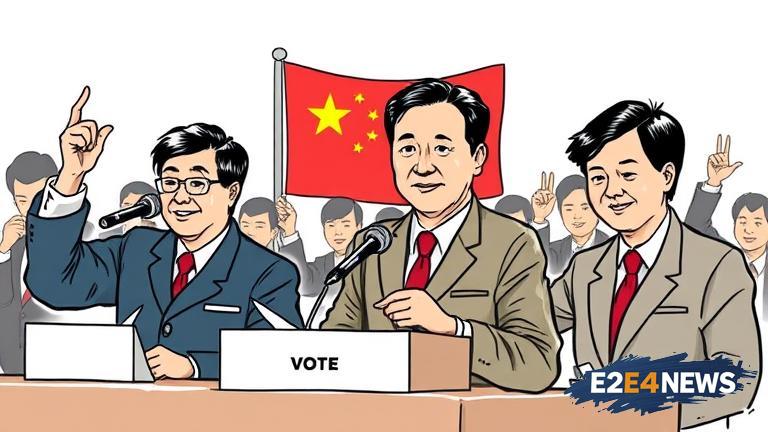In a surprise move, voters in Taiwan have rejected a bid to oust lawmakers who are seen as friendly to China. The election, which was held on Saturday, saw voters overwhelmingly reject the recall bids against the lawmakers, who are members of the Kuomintang (KMT) party. The KMT has traditionally been seen as more friendly to China than the ruling Democratic Progressive Party (DPP). The recall bids were initiated by the DPP, which has been critical of the KMT’s stance on China. The DPP had accused the KMT lawmakers of being too soft on China and of prioritizing economic ties with Beijing over national security. However, the voters disagreed, and the recall bids were rejected by a significant margin. The election result is seen as a significant setback for the DPP, which had hoped to use the recall bids to gain an advantage over the KMT. The result is also expected to have significant implications for Taiwan’s relations with China. The KMT has traditionally been seen as more willing to engage with China, and the election result may embolden the party to pursue closer ties with Beijing. The DPP, on the other hand, has been more cautious in its approach to China, and the election result may lead to a re-evaluation of its China policy. The election result has also been seen as a reflection of the complex and nuanced nature of Taiwanese public opinion on China. While many Taiwanese are wary of China’s growing military presence and economic influence, others see engagement with China as essential for Taiwan’s economic prosperity. The election result may also have implications for Taiwan’s international relations, particularly with the United States. The US has been a long-time supporter of Taiwan, but the election result may lead to a re-evaluation of US policy towards the island. The US has traditionally been wary of China’s growing influence in the region, and the election result may lead to increased tensions between the US and China. The election result has also been seen as a significant test of Taiwan’s democratic system. The recall bids were seen as a way of holding lawmakers accountable, and the election result has demonstrated the strength and resilience of Taiwan’s democracy. The election result has also highlighted the importance of voter turnout, with many voters turning out to cast their ballots. The high voter turnout is seen as a reflection of the intense interest and engagement of Taiwanese voters in the election. The election result has also been seen as a significant milestone in Taiwan’s democratic development, with many seeing it as a reflection of the island’s growing maturity and stability as a democracy. The result has also been seen as a significant challenge to the DPP, which must now re-evaluate its strategy and approach to China. The party must also consider how to rebuild trust with voters, who have clearly rejected its approach to China. The election result has also been seen as a significant opportunity for the KMT, which can now pursue its agenda of closer engagement with China. The party must, however, be careful not to alienate voters who are wary of China’s influence. The election result has also highlighted the importance of finding a balance between economic engagement and national security. Taiwan must navigate a complex and challenging geopolitical landscape, and the election result has demonstrated the need for a nuanced and pragmatic approach to China. The result has also been seen as a significant reflection of the complexities and challenges of Taiwanese identity and politics. The election result has demonstrated the diversity and complexity of Taiwanese public opinion, and the need for politicians to listen to and respond to the concerns of voters.
